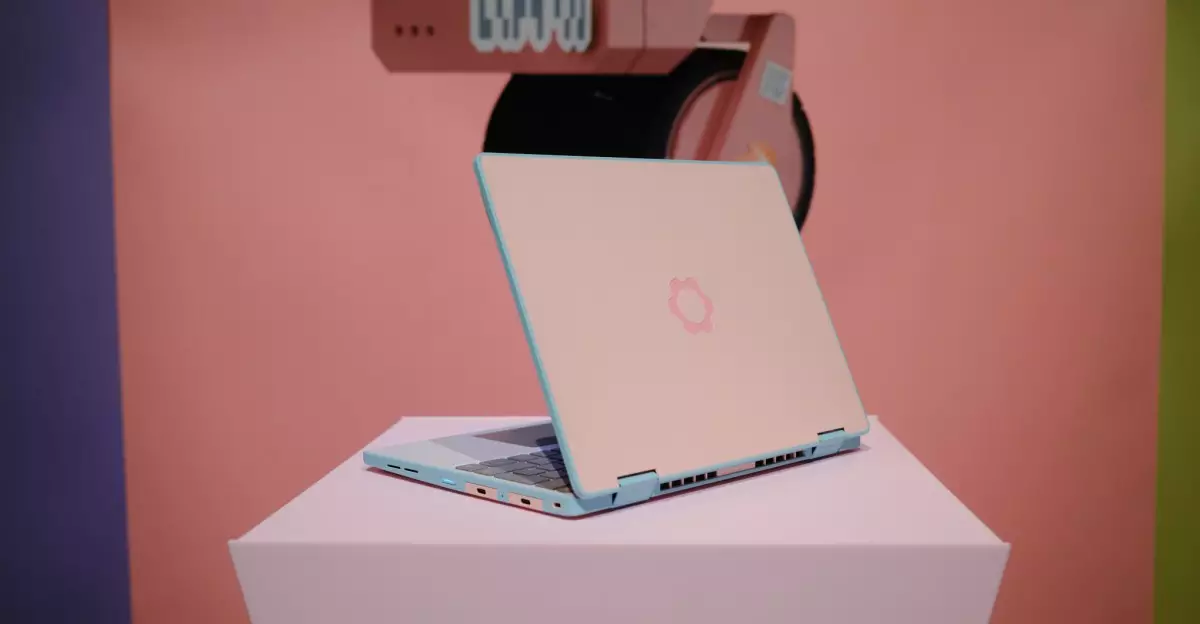In an era where the tech industry is often caught off guard by sudden regulatory changes, Framework’s decision to withhold US preorders for its new Laptop 12 might seem counterintuitive. Yet, this move reflects a strategic understanding of market dynamics, particularly in light of the challenges posed by recent tariffs. While this pause could frustrate eager consumers, it also hints at a potential recalibration of how tech companies navigate pricing and product accessibility in a fluctuating economic environment.
The Alluring Laptop 12: Features That Captivate
Despite the preorder delays in the US, the Laptop 12 has already created ripples of excitement among tech enthusiasts worldwide. With its sleek design and convertible touchscreen functionality, this device marks a significant advancement for Framework, particularly as its first foray into a smaller, more versatile format. Equipped with 13th Gen Intel Core i3 or i5 chips, users can expect enhanced performance without compromising on portability. The device’s touchscreen supports stylus interaction, making it a compelling choice for creatives and professionals who demand flexibility in their tech tools.
What’s arguably more engaging is the commitment to modularity. Framework continues to champion a repairable and upgradable design, a notable deviation from the trends of disposable technology that plague the industry. With the Laptop 12, users can adapt and upgrade as needed, thereby extending the device’s lifespan and minimizing electronic waste—a paradigm shift that resonates with environmentally conscious consumers.
Aesthetic Appeal Meets Functionality
In addition to its functionality, Framework has not overlooked the importance of aesthetics. The colorful pastel pink and mint finishes are refreshingly distinctive, aiming to appeal to an audience that values personal expression in their devices. In an industry often defined by stark black or gray metal designs, these vibrant options can lead to a more engaging user experience that reflects individuality.
The introduction of an “entry-level” model at a lower cost than its 13-inch counterpart is also a strategic move. It acknowledges the diverse financial capacities of consumers while still maintaining a premium edge. Despite the uncertainty regarding tariffs impacting pricing, Framework’s hesitance to raise costs speaks volumes about its commitment to consumer value.
Navigating Tariff Turbulence
Framework’s decision to pause US sales emerges directly from the escalating tariffs imposed on imports from Taiwan, where the company manufactures its devices. While the situation is undoubtedly daunting, it is commendable that Framework is taking a cautious approach by “delisting and delaying” to minimize immediate financial hits. The transparency in its communication with customers through platforms like Bluesky is an effort that sets a precedent for open dialogue in the tech industry—something that is frequently overlooked.
This proactive stance not only prioritizes the financial health of the company but also underscores a new model for tech businesses navigating external pressures. Rather than capitulating to the uncertainty, Framework is adjusting its production and sales strategy thoughtfully, showing that innovation goes hand in hand with resilience.
While the pause on US preorders for the Laptop 12 may be a temporary setback, it raises critical questions about how tech companies can adapt and redefine their strategies in response to economic shifts. Framework’s commitment to innovation, sustainability, and consumer consideration positions it as a forward-thinking player in the ever-evolving technology landscape.


Leave a Reply
You must be logged in to post a comment.